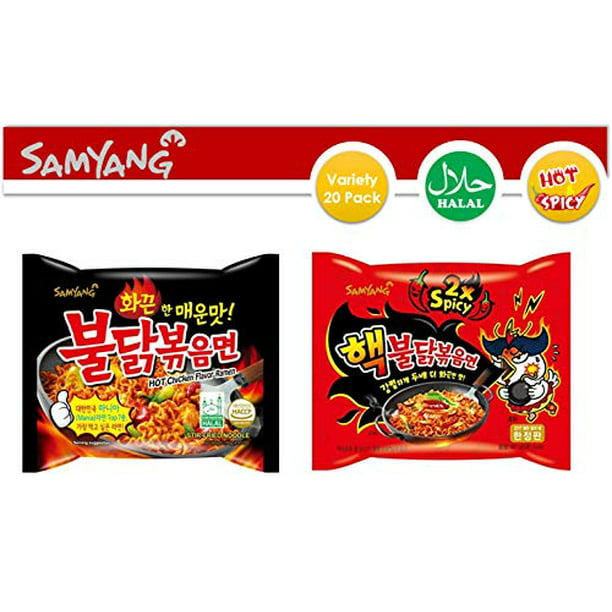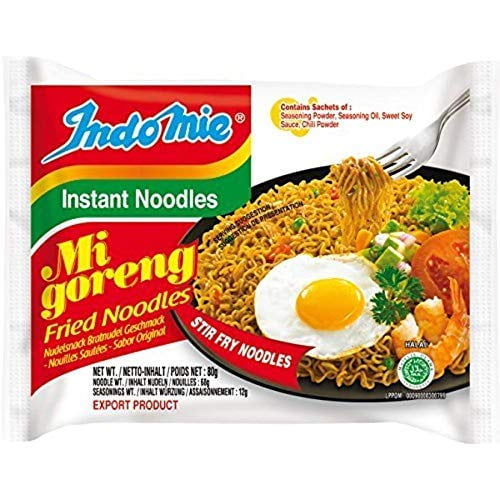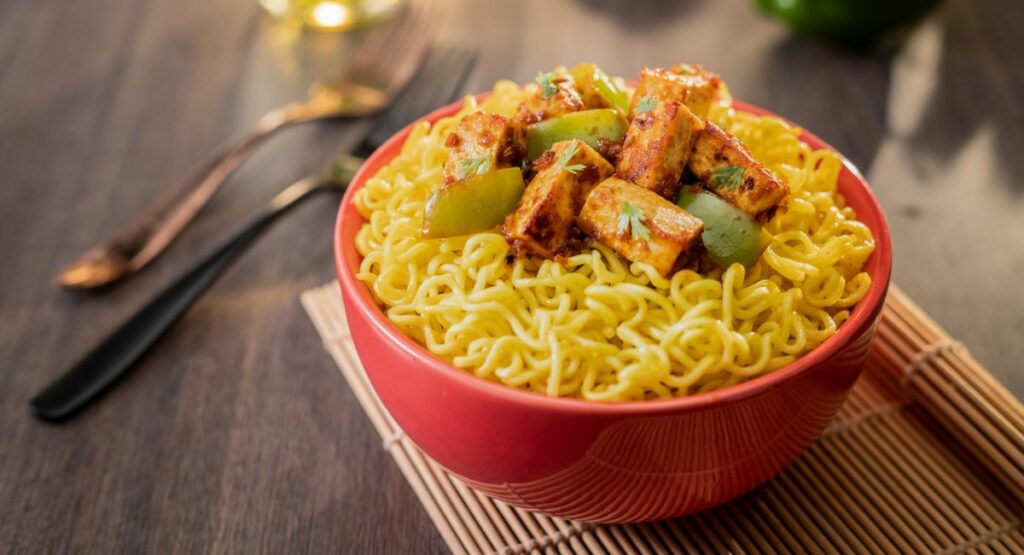Are All Noodles Halal
When it comes to noodles, many people wonder if they are halal. With the increasing popularity and availability of different noodle varieties, it’s important to understand which ones are suitable for a halal diet. In this blog post, we will explore whether all noodles are halal and provide factual data to help you make informed choices when it comes to selecting halal-friendly noodles. So, let’s dive in and unravel the halal status of noodles!

Importance of Halal Certification
Halal certification is of significant importance to Muslims around the world. It ensures that the products they consume and use are prepared according to Islamic dietary laws. When it comes to noodles, halal certification guarantees that they do not contain any forbidden substances or ingredients, such as pork or alcohol.
Having a halal certification not only provides assurance to Muslim consumers but also opens up a wider market for noodle manufacturers. By obtaining halal certification, companies can tap into the growing demand for halal food products and cater to the dietary needs of a diverse customer base.
Halal certification involves a thorough assessment of the manufacturing process, ingredients used, and handling of the product. It ensures that noodles are prepared in compliance with strict halal standards, from sourcing ingredients to packaging and distribution. This certification not only demonstrates a company’s commitment to quality and adherence to halal requirements, but also instills trust and confidence among Muslim consumers.
By choosing to consume halal-certified noodles, Muslims can enjoy their meals with peace of mind, knowing that the food they consume aligns with their religious beliefs and dietary restrictions.
Types of Noodles
There are various types of noodles available in the market, and the halal status may vary depending on the ingredients and production process. Some of the common types of noodles include:
-
Wheat Noodles: These noodles are typically made from wheat flour and water. They are commonly used in dishes like spaghetti, fettuccine, and ramen. Most wheat noodles are halal, but it’s always important to check the ingredient label for any non-halal additives or flavorings.
-
Rice Noodles: Rice noodles are made from rice flour and water. They are a popular choice in Asian cuisines, often used in dishes like pad Thai and pho. Rice noodles are usually halal, but again, it’s essential to check for any non-halal ingredients.
-
Egg Noodles: Egg noodles are made from wheat flour, eggs, and water. They have a slightly richer flavor and a yellow color due to the addition of eggs. While the basic ingredients are halal, some egg noodles may also contain non-halal additives, such as flavor enhancers or preservatives.
-
Instant Noodles: Instant noodles are pre-cooked and usually packaged with flavoring sachets. The halal status of instant noodles can vary, as some brands may use non-halal ingredients or flavorings. It’s crucial to verify the halal certification or check the ingredient list before consuming instant noodles.
When purchasing noodles, it’s always best to look for halal certification or seek out reputable halal brands to ensure that they meet your dietary requirements.

Ingredients in Noodles
When it comes to determining whether noodles are halal or not, it is essential to check the ingredients used in their production. The ingredients list can provide valuable information regarding the halal status of noodles.
Most noodles are primarily made from wheat flour, water, and salt, which are considered halal ingredients. However, it is crucial to be aware of potential non-halal ingredients that may be present in some noodle varieties. Some possible non-halal ingredients to watch out for are:
-
Pork-derived ingredients: Some noodles may contain pork-derived ingredients such as gelatin, lard, or bacon flavoring, which are not permissible in halal dietary practices.
-
Alcohol-containing ingredients: Certain noodles may include alcohol-based flavorings or extracts, which are not considered halal.
Additionally, there is a risk of cross-contamination in non-halal manufacturing facilities. If non-halal products are produced in the same facility where halal noodles are manufactured, there is a chance of cross-contamination, compromising the halal integrity of the noodles.
To ensure that the noodles you consume are halal, it is recommended to look for halal-certified products. These products have undergone strict quality control processes to ensure compliance with halal dietary requirements. Always check the packaging for halal certification symbols or look for reputable halal noodle brands that adhere to halal standards.
Popular Halal Noodle Brands
When it comes to popular halal noodle brands, there are several options available in the market. These brands prioritize halal certification and ensure that their products are suitable for consumption by Muslims. Some of the popular halal noodle brands include:
1. Indomie: Indomie is a well-known brand that offers a wide variety of halal-certified instant noodles. They have different flavors and are widely available in many countries.
2. Maggi: Maggi is another popular brand that offers halal-certified instant noodles. They offer various flavors and have a strong presence in many countries.
3. Mama: Mama is a brand that specializes in Thai instant noodles and offers a range of halal-certified options. They are known for their authentic Thai flavors and are available in many markets.
4. Nongshim: Nongshim is a Korean brand that produces halal-certified instant noodles. They are known for their spicy ramen flavors and are popular among noodle lovers.
5. Mi Sedaap: Mi Sedaap is a brand that offers halal-certified instant noodles with Indonesian flavors. They are known for their delicious taste and variety of flavors.
It’s always important to check the packaging and look for the halal certification logo when purchasing noodles to ensure that they meet your dietary requirements.

Pork-derived ingredients
When it comes to determining whether noodles are halal or not, it is essential to consider the ingredients used. Some types of noodles may contain pork-derived ingredients, which are not permissible in halal food.
To ensure that the noodles you consume are halal, it is crucial to check the ingredients list on the packaging. Look out for any pork-related ingredients, such as pork fat, pork gelatin, or pork flavoring.
Here are a few common pork-derived ingredients that may be present in some noodles:
-
Lard: Derived from pig fat, lard is commonly used in cooking and food production. It is important to avoid noodles that contain lard if you are looking for halal options.
-
Bacon bits: Some noodle brands may include bacon bits as a flavor enhancer. As bacon is made from pork, it is not permissible for halal consumption.
-
Pork broth: Noodles that are made with pork broth or stock are not considered halal. It is important to check the ingredients or labeling to determine if any animal-based broth or stock has been used in the production of the noodles.
By being vigilant and checking the ingredients list carefully, you can ensure that the noodles you consume are halal and meet your dietary requirements.
Alcohol-containing ingredients
When it comes to determining if all noodles are halal, one important consideration is the presence of alcohol-containing ingredients. In the production of some noodles, alcohol may be used as a processing aid or as an ingredient in certain flavorings or seasonings. However, not all noodles contain alcohol, and it ultimately depends on the brand and specific product.
To ensure that the noodles you consume are halal, it is recommended to read the ingredient list carefully. Look for any alcohol-related ingredients such as ethyl alcohol, alcohol flavorings, or any alcoholic beverages mentioned.
Here are some common alcohol-containing ingredients that may be found in noodles:
-
Fermented sauces: Some noodles may use fermented sauces in their seasoning packets, and these sauces can sometimes contain alcohol as a byproduct of the fermentation process.
-
Cooking wines or rice wines: Noodles that are made with certain Asian cooking styles may use cooking wines or rice wines, which can contain alcohol.
-
Flavor extracts: Some flavorings or extracts used in noodle products may be alcohol-based. Examples include vanilla extract and certain fruit extracts.
-
Seasoning mixes: Some seasoning blends may contain alcohol as a solvent or carrier for certain flavor compounds.
It’s important to note that not all noodles contain alcohol, and there are halal-certified brands available that ensure strict adherence to halal standards. When in doubt, it is always recommended to consult with the manufacturer or look for recognized halal certification symbols on the packaging.

Risk of Cross-Contamination in Non-Halal Manufacturing Facilities
When it comes to the halal certification of noodles, one important factor to consider is the risk of cross-contamination in non-halal manufacturing facilities. In facilities where both halal and non-halal products are produced, there is a possibility that trace amounts of non-halal ingredients may find their way into the halal products. This can happen due to shared equipment, utensils, or processing areas.
To minimize the risk of cross-contamination, it is crucial for manufacturers to implement strict segregation practices and proper cleaning protocols between the production of halal and non-halal products. This includes thorough cleaning of equipment, designated processing areas for halal products, and regular testing to ensure compliance with halal standards.
For consumers looking for halal-certified noodles, it is advisable to look for reputable brands that have established halal certification processes. These brands often have dedicated facilities or separate production lines for halal products, reducing the risk of cross-contamination.
It is also important for consumers to read the ingredient labels carefully, as some noodles may contain pork-derived ingredients or alcohol-containing ingredients, which may not be permissible in halal dietary practices.
Here’s a quick summary of the risk of cross-contamination in non-halal manufacturing facilities:
- Cross-contamination may occur in facilities where both halal and non-halal products are produced.
- Manufacturers should implement strict segregation practices and cleaning protocols to minimize the risk.
- Reputable brands with halal certification often have dedicated facilities or separate production lines.
- Consumers should read ingredient labels to ensure there are no pork-derived ingredients or alcohol-containing ingredients present.




